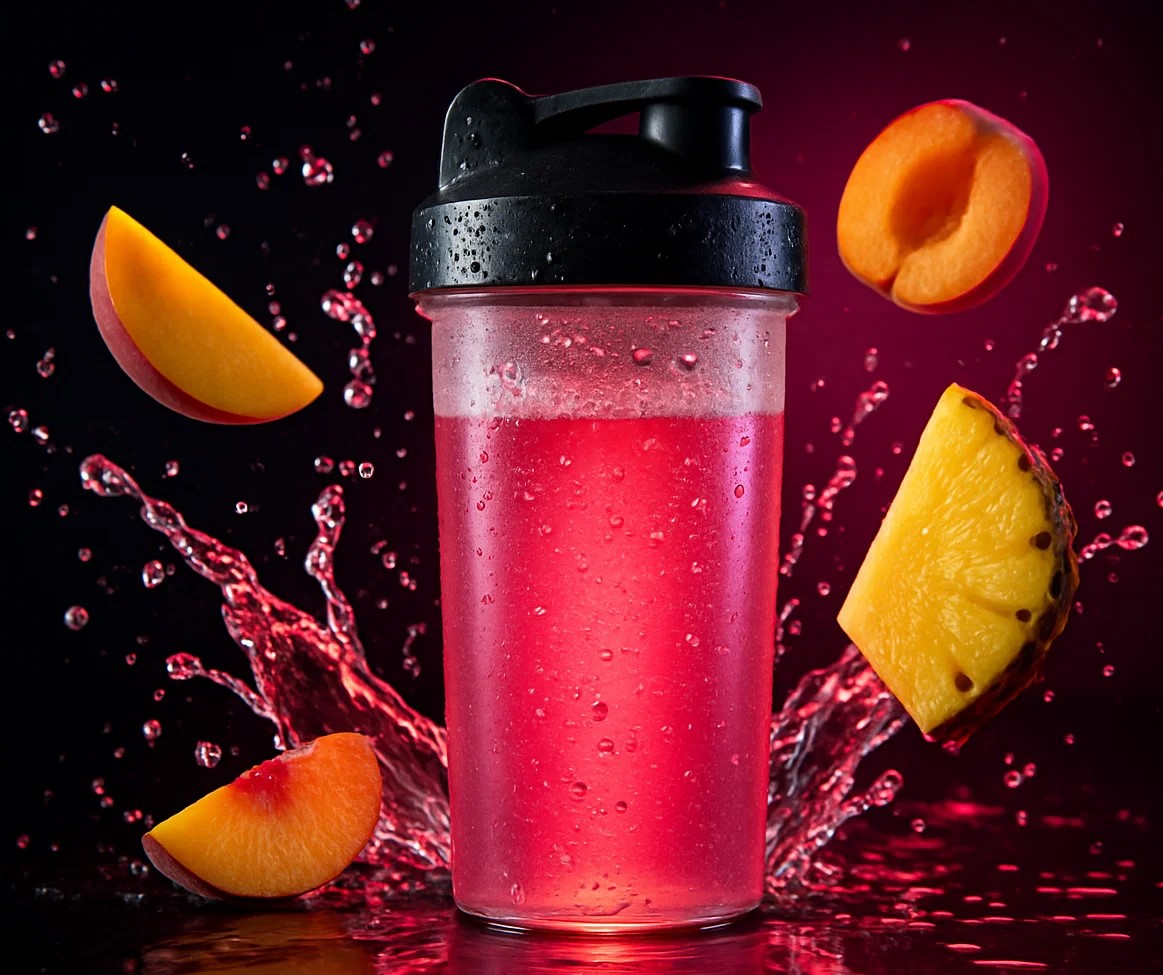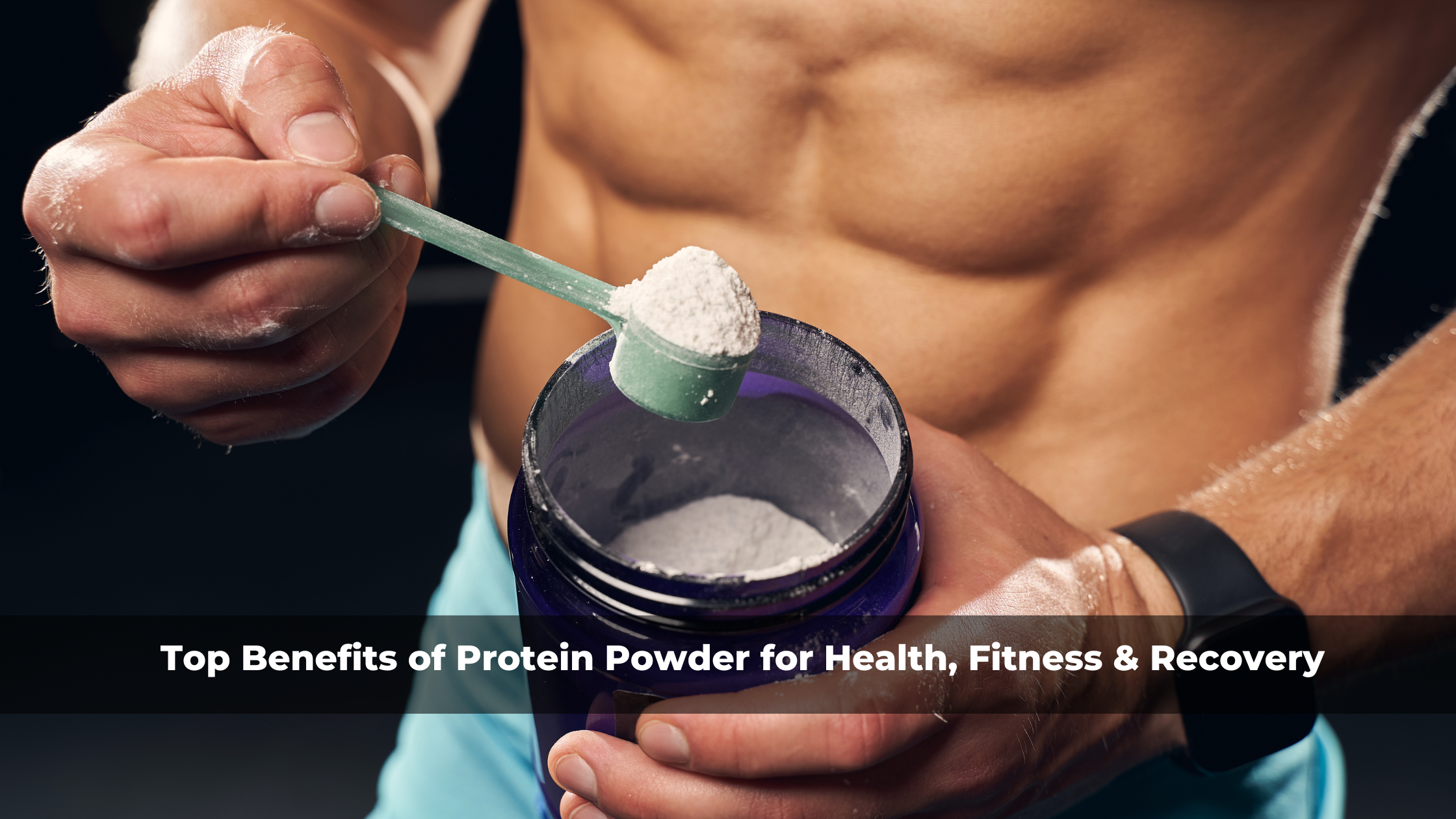The Dinner Table Debate: Why Indian Parents Should Embrace Whey Protein

Strong 8k brings an ultra-HD IPTV experience to your living room and your pocket.
The scene is a familiar one in countless Indian households. A young man, energized from his evening gym session, unscrews a large, glossy black tub. As he scoops a fine powder into his shaker, his mother watches from the kitchen doorway, her brow furrowed with concern. "Beta, what is this 'dabba' you are having every day? Stop this chemical powder. Have a glass of milk, eat some paneer. Is this necessary?"
✍️ For anyone starting a fitness program and looking to improve muscle recovery, our complete guide on whey protein explains how this supplement fuels strength training, aids in fat loss, and supports overall nutrition with clear advice on dosage and timing.
This moment, a blend of parental love and deep-seated suspicion, captures the core of a nationwide dilemma. Despite a fitness revolution sweeping across India, a crucial nutritional tool—whey protein—is still viewed with mistrust, especially by the generation that holds the keys to the kitchen and the family's well-being. This isn't just a generational gap; it's a knowledge gap, filled with pervasive myths and half-truths.
This article is for every son and daughter trying to explain their fitness choices and for every parent genuinely worried about their child's health. We will walk through the fears, dissect the myths with science, and present the unvarnished truth about whey protein, guided by the Only What's Needed philosophy of absolute transparency.
Why Whey Protein Still Faces Resistance in Indian Homes
The resistance to whey protein in India is not arbitrary. It's woven from a complex fabric of cultural norms, historical context, and a healthy dose of skepticism towards anything that feels like a departure from tradition. The Indian kitchen has always been the family's first pharmacy, and our faith lies in whole, natural foods. The concept of a processed powder, no matter how beneficial, feels alien and inherently suspect.
The trust lies in Indian diet protein sources like dal, dahi, paneer, and eggs. These are familiar, time-tested, and perceived as "pure." A tub of whey protein, on the other hand, is often incorrectly lumped with medicines or, worse, dangerous performance-enhancing drugs. This perception is amplified by a market flooded with counterfeit products, creating a legitimate fear of adulteration. The question isn't just "Is it good for you?" but "Can we even trust what's inside the box?" This is why the conversation about whey protein safety is paramount.
Exposing the Myths: What Science Says About Your Biggest Fears
Let's address the most common whey protein myths in India head-on, replacing fear with facts from our Food Pharmer perspective.
Myth 1: "Will it affect their kidneys and liver?"
The Fear Behind It: This is the most prevalent myth, born from the idea that a high-protein diet overloads the body's filtering organs. Parents worry that this "heavy" powder will cause irreversible damage over time, leading to chronic disease.
The Scientific Reality: This is unequivocally false for healthy individuals. The kidneys are incredibly efficient organs designed to filter metabolic waste, including urea, which is a byproduct of protein metabolism. Numerous large-scale studies have debunked this myth. A landmark study published in the Journal of the International Society of Sports Nutrition found that high protein intake (up to 3.3g per kg of body weight, far more than a regular user would consume) had no harmful effect on kidney or liver function in healthy, resistance-trained men. It's crucial to differentiate: while individuals with pre-existing kidney disease are advised to monitor protein intake, whey protein does not cause kidney disease in healthy people.
The Only What's Needed Promise: We understand this fear. That's why our whey protein is formulated for purity and easy digestion. By avoiding unnecessary fillers and additives, we ensure that what you're consuming is clean protein, minimizing any unnecessary metabolic load and supporting overall whey protein safety.
Myth 2: "Is this a steroid? Will it cause hormonal problems?"
The Fear Behind It: The association between gym culture, big muscles, and steroids has unfortunately and incorrectly looped whey protein into the conversation. Parents fear it will cause hormonal imbalances, aggression, hair loss, or interfere with their child's natural development.
The Scientific Reality: This is a fundamental misunderstanding of what whey protein is. Whey protein is a natural, high-quality dairy product. It's the liquid part of milk that separates during the cheese-making process. It is a food, not a drug or a synthetic hormone. Anabolic steroids are synthetic substances that mimic testosterone and have profound, often dangerous, effects on the endocrine system. They are chemically and functionally unrelated. Reputable brands ensure their products are free from banned substances.
The Only What's Needed Promise: Our commitment is to 100% transparency. Our labels clearly state every ingredient. We provide pure protein, not hormones. Using our products ensures you're fueling your body with clean food, dispelling any fear of consuming hidden or harmful substances.
Myth 3: "Will it make them weak later in life if they stop taking it?"
The Fear Behind It: This stems from the "shortcut" suspicion—that the body will become dependent on the supplement and will "forget" how to function without it, leading to a crash in health and strength once consumption stops.
The Scientific Reality: Your body does not become dependent on whey protein any more than it becomes dependent on chicken or paneer. Muscles grow in response to two things: stimulus (exercise) and fuel (protein and calories). If you stop exercising and consuming adequate protein (from any source), your muscles will naturally atrophy (shrink). This has nothing to do with stopping the supplement itself. Whey protein benefits lie in providing a convenient and efficient source of that fuel; it doesn't create a dependency. The truth about whey protein long term use is that it's simply a consistent way to meet your protein goals.
Myth 4: "Does it cause pimples, acne, or digestion problems?"
The Fear Behind It: Some individuals do experience acne or digestive discomfort when starting whey protein, which parents rightly notice. This reinforces the idea that it's an "unnatural" substance the body is rejecting.
The Scientific Reality: This can be partially true, but the cause is often misunderstood. Some studies suggest a link between high dairy intake and acne in sensitive individuals, as whey can influence hormones like IGF-1. However, this is often linked to lower-quality whey concentrates that contain more lactose and dairy hormones. Digestive issues like bloating are almost always due to lactose intolerance.
The Solution: This is where product quality makes all the difference. A high-quality whey protein isolate or a clear whey protein is filtered to remove most of the lactose and fat, making it much easier to digest and less likely to cause skin or gut issues. This makes it an excellent choice of whey protein for beginners.
The Only What's Needed Promise: Our Clear Whey Protein is specifically designed to address this. It's ultra-filtered, incredibly light, and has minimal lactose, offering a juice-like consistency that's gentle on the stomach. It provides all the whey protein benefits without the bloating, making it one of the best whey protein in India for sensitive users.
Myth 5: "Can't they just drink more milk or eat more dahi and paneer?"
The Fear Behind It: This is a logical question rooted in cultural trust in traditional Indian diet protein sources. Why opt for a powder when whole foods are available?
The Scientific Reality: While milk, dahi, and paneer are excellent protein sources, the whey vs milk protein debate is about efficiency, speed, and goals. Whey protein is absorbed much faster than casein (the other protein in milk), making it ideal for post-workout recovery when your muscles need amino acids quickly. Furthermore, to get the same amount of protein as one scoop of whey (approx. 25g), you would need to consume a significantly larger volume of whole foods, which also come with more fats and carbohydrates (and thus, calories). This isn't always practical or desirable for someone managing their macronutrient intake for specific fitness goals.
The Only What's Needed Promise: We believe in a food-first approach. Supplements should supplement a good diet, not replace it. Our whey protein is designed to be a convenient, efficient tool to help you meet your goals when whole foods fall short or are impractical.
Myth 6: "What will be the long-term effects after 10–15 years? Has anyone studied this?"
The Fear Behind It: This is a prudent, forward-thinking concern about the unknown. Are there hidden risks associated with whey protein long term use?
The Scientific Reality: Whey protein is not a new invention; it has been studied extensively for decades. The scientific community has a robust body of long-term research on athletes, bodybuilders, and regular active individuals. This research, available on platforms like PubMed and Google Scholar, consistently supports its safety and efficacy for muscle building, weight management, and even supporting healthy aging. The consensus is clear: consistent consumption of high-quality whey protein as part of a balanced diet and active lifestyle is safe and beneficial.
Myth 7: "Is my child only taking this because their 'gym trainer bhaiya' or friends told them to?"
The Fear Behind It: Parents worry about peer pressure and the influence of unqualified trainers who may be motivated by commissions rather than their child's actual well-being.
The Scientific Reality: This is a valid social concern. The fitness industry does have its share of misinformation. This is precisely why education and choosing a trustworthy brand are critical. The solution is not to ban the supplement but to empower your child (and yourself) with the right knowledge. Encourage them to understand why they need it, to calculate their actual protein requirements, and to choose a brand that values transparency over hype.
The Only What's Needed Promise: We are not just a brand; we are a Food Pharmer. Our mission is to educate. Our blog,
Science-Backed Facts About Whey Protein
Protein Deficiency is Real: A 2017 survey published in Business Insider found that over 70% of urban rich Indians have a protein-deficient diet. Whey protein is a highly effective tool to bridge this gap.
Superior Bioavailability: Whey protein has a Biological Value (BV) of around 104, higher than eggs (100), chicken (79), and casein (77). This means more of the protein you consume is actually absorbed and used by your body for muscle repair and growth.
Supports Weight Management: A study from the National Institutes of Health (NIH) showed that whey protein supplementation can improve body composition by increasing lean muscle mass and decreasing fat mass, partly due to its effect on satiety (making you feel full).
Safe for Long-Term Use: Decades of research on athletes and active individuals confirm that whey protein long term use is safe and does not cause the adverse effects it is often accused of.
Comparison Table: Whey Protein vs. Traditional Indian Protein Sources
| Feature | Only What's Needed Whey Protein | Milk (250ml) | Paneer (100g) | Dahi (150g) |
| Protein Content | ~25g per scoop | ~8g | ~18g | ~8g |
| Digestion Speed | Very Fast (Ideal post-workout) | Slow (Casein) | Slow (Casein + Fat) | Slow |
| Fat Content | Very Low (<1g) | ~8g (Full Fat) | ~20g | ~7g |
| Carbs (Lactose) | Very Low (<2g) | ~12g | ~3g | ~8g |
| Cost Per Gram of Protein | Highly Competitive & Efficient | Moderate | High | Moderate |
| Best For | Post-workout recovery, bridging protein gaps, convenient nutrition. | Sustained protein release, bedtime snack. | Meals, slow-digesting protein source. | Gut health, meals. |
In a market clouded by doubt, the only antidote is trust. And trust is built on transparency. This is where Only What's Needed stands apart. We are not just another supplement company; we are a Food Pharmer on a mission to bring clarity and honesty to the wellness industry.
Our approach directly addresses the fears of Indian parents:
Unquestionable Purity: We tackle the "asli hai ya nakli" fear head-on. Our whey is sourced from trusted global suppliers and is formulated without any banned substances, artificial sweeteners, or fillers. What you read on the label is what you get.
Designed for Digestibility: Our Clear Whey Protein is the perfect answer to concerns about bloating and acne. By providing an ultra-filtered, lactose-free option, we offer a superior whey protein for beginners and those with sensitivities.
Transparency as a Principle: Our front-of-pack labeling and commitment to education empower you to move beyond myths. We want you to understand the science behind whey protein benefits so you can make a confident choice for your family. Read our guide on
How to Read a Nutrition Label Like an Expert to see our philosophy in action.
Frequently Asked Questions (FAQ)
1. What is the right age to start taking whey protein? While it's safe for most ages, whey protein is most beneficial for active teenagers (16+) and adults who are not meeting their protein needs through diet alone. It's always best to consult a doctor or nutritionist before starting any supplement regimen for a minor.
2. What's the difference between Whey Protein Concentrate and Isolate? Whey Protein Concentrate is less filtered and contains more lactose and fat. Whey Protein Isolate, like the one used in our Clear Whey Protein, undergoes further processing to remove these, resulting in a higher protein percentage and making it a better choice for people with lactose intolerance.
3. Will whey protein make my daughter bulky? No. This is a common myth. Gaining significant muscle mass ("bulk") requires a specific combination of heavy weight training and a high-calorie diet. For most women, whey protein for fitness will help in recovery, toning muscles, and meeting protein goals, leading to a lean, strong physique, not bulk.
4. How do I know if I am buying the best whey protein in India? The best whey protein in India is defined by purity, transparency, and third-party testing. Look for brands that clearly list all ingredients, avoid proprietary blends, and are open about their sourcing. A brand like Only What's Needed, built on the Food Pharmer philosophy, prioritizes these markers of quality.
5. Is the whey vs milk protein debate really that important? Yes, for specific goals. Both are good protein sources. However, for post-workout recovery, whey's fast absorption is superior. For a slow, sustained release of protein (like before bed), milk's casein is more suitable. It's about using the right tool for the right job.
6. I've heard about whey protein side effects truth. What is it really? The "truth" is that for healthy individuals, clinically significant side effects are virtually non-existent with high-quality whey. Most reported issues like bloating are due to lactose in lower-grade products or overconsumption. Choosing a pure, transparent brand like Only What's Needed minimizes these risks.
Conclusion: Choose Facts, Not Fear. Choose What's Needed.
The journey to better health should be paved with confidence, not confusion. For too long, the narrative around whey protein in India has been dominated by fear and misinformation, creating a needless barrier between young fitness enthusiasts and a safe, effective nutritional tool.
The time has come to replace these myths with scientific truth. Whey protein is not a dangerous chemical or a magic bullet. It is a simple, effective, and safe food product derived from milk, designed to supplement a healthy diet and active lifestyle.
At Only What's Needed, we invite you to step away from the noise and embrace a new standard of clarity. We offer more than just the best whey protein in India; we offer peace of mind. We offer you the assurance that you are giving your body a clean, honest, and effective product, meticulously crafted by a Food Pharmer you can trust.
Don't let myths dictate your family's health choices. Empower yourself with knowledge, read the label, and give your body Only What's Needed.
Note: IndiBlogHub features both user-submitted and editorial content. We do not verify third-party contributions. Read our Disclaimer and Privacy Policyfor details.







